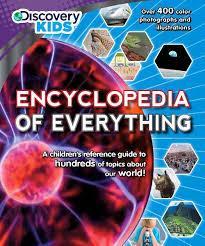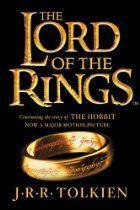Books to Read for Classroom Camp Theme
| 7.3A Reading for pleasure Term 3 Unit 5 | No38 school lyceum | ||||||
| Date: 10 .01.201 9-18.01.2019 | Teacher's proper noun: Yermakhanova A.D. | ||||||
| Form 7 А,Ә ,Б,Г | Number present: | absent-minded: | |||||
| Theme of the lesson | Learners read non-fiction books in Kazakh, English, Russian languages | ||||||
| Learning objectives(s) that this lesson is contributing to | 7.C3 Respect differing points of view; 7.C6 Organize and nowadays information clearly to others; vii.C8 Develop intercultural sensation through reading and discussion; 7.S6 Begin to link comments with some flexibility to what others say at sentence and discourse level in pair, group and whole form exchanges; 7.L1 Understand with fiddling back up the chief points in extended talk on a express range of general and curricular topics. | ||||||
| Lesson objectives | All learners will exist able to: | ||||||
| Solve the rebus and guess the topic of the lesson; Understand nearly specific data and particular while watching video; Give an stance at judgement level on classmates' presentation; Understand what fiction and non-fiction literature is. | |||||||
| Near learners volition be able to: | |||||||
| Set lesson objectives with teacher; Go on interaction going in longer exchanges while preparing a presentation in groups; Get a speaker of the group to human action as a teacher and explain the topic. | |||||||
| Some learners volition be able to: | |||||||
| Ccritically analyse the departure betwixt fiction and not-fiction literature; Help less able learners during grade/grouping/pair discussions. | |||||||
| Language objective | Fiction and Non-fiction literature. | ||||||
| Value links | Lifelong learning, Collaboration, Respect to different opinions, Transparency in evaluation, Global Awareness | ||||||
| Cross curricular links | Kazakh, Russian and English Literature through discussing fiction and non-fiction books | ||||||
| Previous learning | Term 2 noesis | ||||||
| Use of ICT | Projector or Smart board for showing a presentation Laptops and internet during a group activity | ||||||
| Intercultural awareness | Have multifariousness of other cultures' literature | ||||||
| Kazakh culture | Discussion of Kazakh fiction and non-fiction books | ||||||
| Pastoral Care | Educatee centered teaching: respect, support and scaffolding; To create a friendly temper for collaborative work. Promote a sense of self-esteem and cocky-respect and respect for others among all the learners. | ||||||
| Health and Safety | Everyday classroom precautions will ensure that safe measures are provided to forbid the exposure of electrical power cords | ||||||
| Planned timings | Planned activities | Resources | |||||
| Beginning one-3 min 3-7 min Middle 7-x min ten-37 min: ii min – group sectionalisation two min – instructions 13 min – group work half-dozen min for each groups presentation 3 min – video and self-evaluation Terminate 37-twoscore min Home chore | Greetings: W Teacher greets learners and congratulates the grade on the kickoff of the 3rd term. And then, teacher hands out stickers and asks learners to write a compliment to a peer. Learners write wishes and squeamish words to each other, so learners collaborate and create a friendly atmosphere. Pb-in: P, W Learners look at the slide and in pairs try to solve the rebus in club to approximate the topic of the lesson. Learners volition solve the rebus and find out the theme of the lesson. Then teacher asks learners what they are going to larn today. Learners volition approximate that they will read and discuss different books, larn nearly famous authors. Then teacher and learners ready the lesson objectives together. Fiction or Non-fiction? W Teacher displays pictures of fiction and non-fiction books / journals of Kazakh, Russian and English literature. Learners should wait at the pictures and analyse the difference between them. This activity is aimed at developing learners' disquisitional thinking skills since learners are expected to analyse the pictures and empathize which books refer to fiction and non-fiction literature. Learners should say that these are different books, but the role of teacher is to encourage them to understand what fiction and non-fiction literature is. At this phase learners might non know the terms "fiction" and "non-fiction". Group project "You are the Instructor", Thousand, f When learners have guessed the difference betwixt the suggested books, split up the class into 2 groups. Teacher hands out parts of puzzles to learners. Learners walk around the classroom and collect puzzle pieces. When the puzzles are gear up, 2 groups are formed(Instructor should cutting the pictures to make puzzles beforehand.) Group B investigates non-fiction literature. Differentiation Group A (less able learners) are given key words with translation to utilize in their presentation Group B (more able learners) are given key words with definitions. Before learners start working in groups, teacher reminds that they should split up responsibilities in a group (speakers 1-iii, art designer, writer, time keeper) Teacher gives clear pedagogy and sets time: v minutes to study what fiction or not-fiction literature is, 5 minutes to create a poster, 3 minutes to prepare speech. Earlier learners' presentation, instructor introduces the assessment criteria: A detailed explanation of fiction or not-fiction genre with examples of Kazakh, Russian and English literature Grammatical Accuracy (Present Simple) Clear affiche All learners contribute to group work Fluency and right pronunciation While 1 group is presenting, the other i is to comment and enquire questions. Then learners watch a video near fiction and not-fiction literature and reverberate on ain presentation. Reflection P Learners create a cinquain poem with the word "reading" or "book" or any discussion related to the topic of the lesson If necessary, instructor explains to learners the construction of a cinquain and gives a sample Learners demand to bring a favourite volume in Kazakh, Russian or English and be ready to describe it. | Stickers PPP, slides one-2 PPP, slide 3 PPP, slide 4 laptops, net access, posters, markers Pictures for puzzle grouping segmentation Appendix 1 PPP, slide v PPP, slide half dozen https://www.youtube.com/sentry?v=7RRPqkPnRl8 - Video almost the differences betwixt fiction and not-fiction literature PPP, slides 7-eight | |||||
| Cease 1min | Feedback: Teacher asks learners what task was difficult to them and which pair worked well. | ||||||
| Additional information | |||||||
| Differentiation – how do you plan to requite more support? How do y'all plan to challenge the more able learners? Differentiation will exist implemented through presenting a differentiated support in grouping activeness . For less able learners- the central words with translation related to fiction literature For less able learners- the primal words with definitions related to non-fiction literature | Assessment – how are you planning to check learners' learning? Assessment criteria volition be presented to the learners before starting the group activity Observe learners when presenting their group projects. Did the group dynamics work? Did each learner contribute to the presentation? If not, why not? (e.m. didn't sympathize what to practice; non and then confident speaking English; non interested in topic; other) Monitor learners to check they can choice up specific details when listening about the difference betwixt fiction and not-fiction literature | Critical thinking Analyzing the pictures to solve the rebus and guess the topic of the lesson Searching for data, analyzing it and preparing own presentation nigh fiction and non-fiction literature Analyzing the difference between fiction and non-fiction literature Creating c cinquain verse form with one word related to the topic of the lesson | |||||
| Reflection Were the lesson objectives/learning objectives realistic? Did all learners attain the LO? If not, why? Did my planned differentiation work well? Did I stick to timings? What changes did I make from my plan and why? The lesson went well as the learners managed guessing the topic of the lesson and were actively involved in class discussion and grouping activeness. Almost of learners contributed much to grouping work and acted every bit teachers. Moreover, learners explained features of fiction and not-fiction literature well. Differentiation of the group work was advisable since less able learners need extra support due to lack of vocabulary. The group activity was constructive as it was aimed at developing learners' critical thinking and self-learning skills. However, learners could not stick to timings and grouping work went longer than expected. Side by side time, I will programme group work better taking into business relationship learners' skills (seven graders need more fourth dimension while preparing a group presentation and they spend more time on making their posters dainty) | |||||||
| Summary evaluation What two things went really well (consider both teaching and learning)? i: Group activity 2: Cinquain poem What two things would have improved the lesson (consider both teaching and learning)? 1: Timing 2: What have I learned from the lesson about this form or individuals that volition inform my next lesson? Nigh of my learners love group work and cocky-report. They liked being a teacher | |||||||
Appendix 1
Vocabulary for less-able learners
Fiction Literature
| Word | Translation |
| Fiction literature | Көркем әдебиет / Художественная литература |
| Commercial fiction | Коммерциялық әдебиет / Коммерческая литература |
| Genre | Жанр |
| Mystery | Құпия / Загадочный Детективный роман |
| Romance | Роман |
| Science Fiction / Fantasy | Ғылыми қиял/фантастика (қияли) Научная фантастика / фэнтези |
| Western | Батыстық фильмдер Вестерн |
| Horror | Қорқынышты/ Ужасы |
| Young adult | 12-sixteen жас оқырмандарға әдебиет/ Литература для читателей 12-sixteen лет |
| Graphic symbol | Мінезі, сипаттамасы / Персонаж книги (человек, животное или существо) |
| Master character | Басты рөл/ Главный персонаж |
| Way | Стиль |
| Diction | Дикция/ Манера выражения мыслей |
| Audience | Оқырмандар, Аудитория / публика, в данном контексте: читатели |
Vocabulary for more-able learners
Non-Fiction Literature
| Word | Definition |
| Not-fiction literature | the co-operative of literature comprising works of narrative prose dealing with or offering opinions or conjectures upon facts and reality, including biography, history, and the essay |
| Genre | A kind or type of literary, musical, ir artistic work. Literary genres include fiction, nonfiction, drama, and poetry. |
| Biography | a written account of another person's life: |
| Autobiography | a history of a person'due south life written or told by that person. |
| Encyclopedia | a book, fix of books covering all branches of noesis or all aspects of ane subject field |
| Guidebook | a book of directions, advice, and information, especially for travellers or tourists |
| Graphic symbol | A person, an animal, or an imaginary creature that takes role in the action of a literary work |
| Master character | In literature, a major character is defined every bit a graphic symbol that is cardinal to the evolution and resolution of the story's disharmonize. Well-nigh of the action of the story happens around the major character or characters, and their activity advances the plot and helps determine the outcome of the text. |
| Expository texts | is the author'south reason for writing. Information technology may exist to persuade, to inform, to entertain, or to draw. |
| Persuasive texts | are written to influence the opinions or actions of an audience. (editorials, speeches, debates, reviews) |
| Style | a writer's style is fabricated up of the features that brand his or her expression of ideas distinctive. Writers may apply various styles depending on their specific purpose. |
| Diction | is word choice, types of words a author uses: hard or simple, abstract or concrete, sometime-fashioned or modernistic. |
| Audience | These are the people who read what a writer writes. A author should make up one's mind who they are writing for before kickoff the writing procedure. Case: adults, women, teens, early readers, etc. |
Source: https://multiurok.ru/files/reading-for-pleasure-7-grade.html


0 Response to "Books to Read for Classroom Camp Theme"
Post a Comment